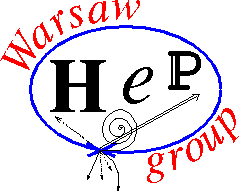SEMINARIUM FIZYKI WIELKICH ENERGII
Dnia 8 marca (piątek) o godzinie 10:15, w sali B2.38 odbędzie się seminarium, na którym zostanie wygłoszony referat pt.:
„Pacific Ocean Neutrino Experiment (P-ONE)”
Referuje: dr hab. Paweł Małecki (IFJ PAN)
The neutrino astronomy is a new but already well-established branch of physics under a rapid development in the recent years and fitting well into the concept of multi-messenger astronomy. The studies of astrophysical very-high-energy neutrinos are carried out by large-scale next-generation neutrino telescopes, located in different regions of the world and including the IceCube, Baikal-GVD and KM3NeT detectors currently in operation. The Pacific Ocean Neutrino Experiment
(P-ONE) is currently under construction in the Pacific Ocean, 600 km west from Vancouver at depth of 2.6 km and will cover over 3 cubic-km of active volume, being sensitive to neutrinos with energies between 100 TeV and 10 PeV. Its first regular measurement line will be deployed by the end of 2025, followed by subsequent lines shortly after. This talk reviews the design and working principles of the P-ONE detector, existing results and perspectives.
Serdecznie zapraszamy
dr hab. Katarzyna Grzelak
prof. dr hab. Aleksander Filip Żarnecki

